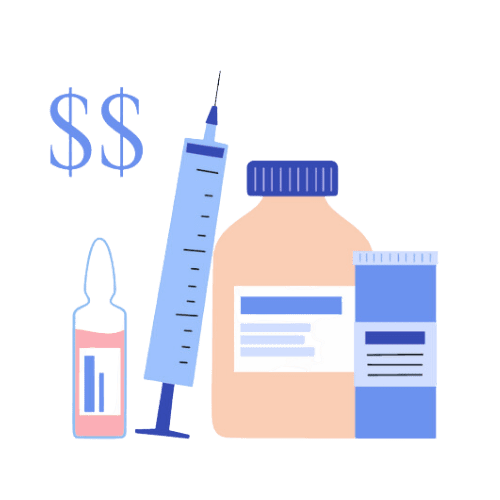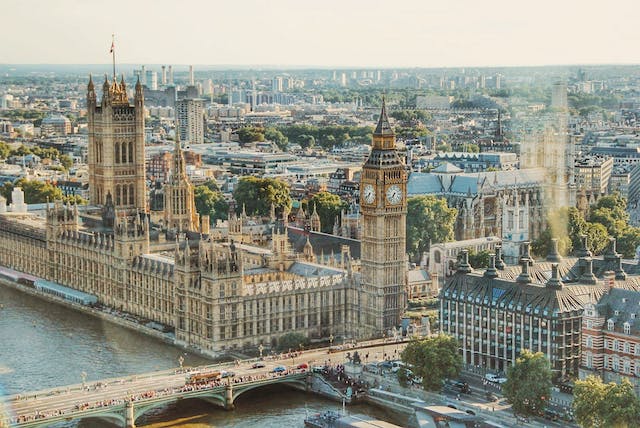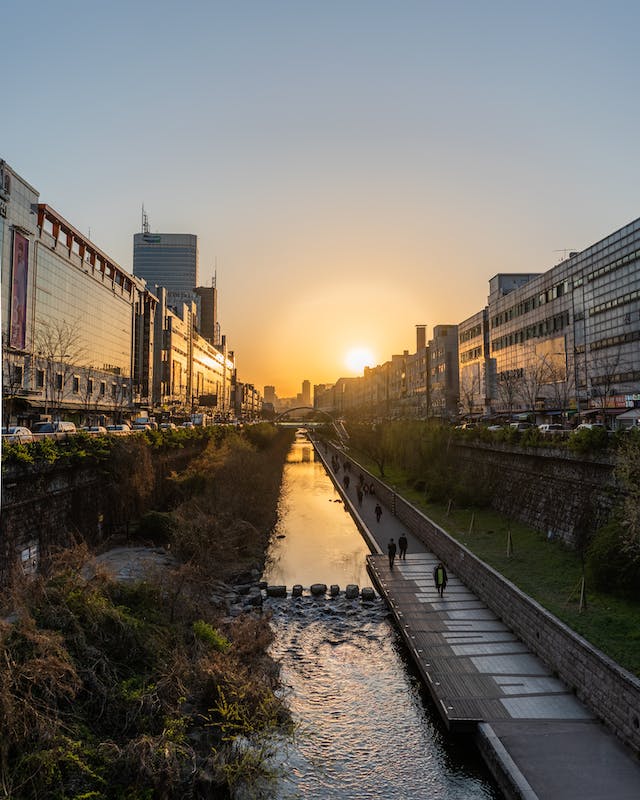Egg Freezing & IVF in Nepal
At Zora Health, you are our top priority. We’re here to guide you through every step of your egg freezing or IVF journey — helping you understand your options, and make confident, informed decisions about your care and costs.
Egg freezing, also known as mature oocyte cryopreservation, is a method used to save women’s ability to get pregnant in the future.
In vitro fertilisation (IVF) is a procedure used to help with fertility, prevent genetic problems and assist with the conception of a child

Spread out the cost of treatment over 12, 24, and 36 months to avoid large upfront payments and reduce financial burden.
LEARN MORE
Accessible & affordable fertility care in Nepal
Egg Freezing and IVF in Nepal
Fertility treatments such as egg freezing and IVF are available in Nepal. There is no legal age limit for availing IVF treatments. At the best IVF treatment centres, doctors have actively participated in clinical trials with other institutions and use cutting-edge technology to maintain their reputation for having high IVF success rates. Infertility treatment specialists in Nepal determine the best type for each patient, whether it's segmented IVF treatment, natural IVF process, or standard IVF cycle. Modern technologies in IVF centres include hysterosalpingography used to detect blocks in tubes, hysteroscopy, laparoscopy, vitrification, Embryoscope, PGS, and ERA. The average cost of IVF in Nepal is 3-4 lakhs/USD 3,700 per cycle including medication.
What Medical Travellers Should Know About Nepal
Nepal has been practising alternative medicine for the past thousand years. Its medical tourism strengths are in yoga and spiritual medicine with meditation. In hospitals, the most sought-after medical science treatments are knee transplants, cosmetic and dental procedures, and cardiac surgery. Facilities are world-class due to major infrastructure and technological progress. When coupled with the allure of the country's geographical wonders, medical travellers, especially those seeking fertility treatments, are keen to explore Nepal as a medical destination.
Healthcare is affordable in Nepal. It is 30% cheaper than in Western and European countries. There are also many doctors and paramedical staff who graduated from the Nepal Medical College. Others have been educated abroad at Nanjing Medical University in China and Lady Harding Medical College in India. The language barrier is not an issue because many doctors and medical staff have a good working knowledge of English, especially in international hospitals such as the Grande International Hospital.
What To Do in Nepal During Your Medical Vacation
Nepal is a haven for mountain climbers and trekkers from around the world. The Himalayas and the Everest Base Camp are the two major things to tick off the bucket list. After seeing the mountains, visit the UNESCO World Heritage Site of Dunbar Squares of Kathmandu Valley. Each of the three Squares has its unique collection of temples, museums, monuments, and other architectural wonders. Two stupas you need to see are the Swayambhunath Stupa and Bouddhanath Stupa. Perfect for post-medical procedures, simply relax with the view of Pokhara City of Lakes. If you want to take it up a notch or two, you can go paragliding and boating too.
Nepal is a safe country. Tourists say that Nepalese men are very respectful to LGBTQ+ and solo female travellers. If you are going up the mountains for a trek, hire a guide to ensure safety. Ask for a Diamox prescription so that you can prepare yourself for possible altitude sickness during your trek. Avoid trekking during monsoon season and snow storms and read landslide safety tips. When you hear a bell, know that a yak is running near you so stay out of its path. When in the city, do not stop to take photos during protests. Simply watching an ongoing protest is a cause for deportation for tourists.
You will arrive at the Tribhuvan International Airport in Nepal. The airlines operating here are Nepal Airlines, Buddha Air, Himalaya Airlines, Saurya Airlines, Simrik Airlines, Yeti Airlines, Sita Air, Shree Airlines, and Tara Air. All of these airlines have domestic flights since only Nepal Airlines and Himalaya Airlines service international flights. When getting around the country, buses are the most common form of transportation. Better take tourist buses over local buses for a more comfortable air-conditioned ride. You can also ride metered taxis and rickshaws.
The official language is Nepali. It is spoken by 45% of the population. There are also other recognised official languages, such as Maithili, Bhojpuri, Tharu, Tamang, and Newari. English is widely spoken in Kathmandu, especially in business settings. It is also taught in schools so many Nepalese have a working knowledge of English.
Social Attitudes Towards Fertility Treatment
An article reported that there is a growing number of Nepalese seeking infertility treatments at fertility centres, especially among local couples with husbands who have worked abroad. One IVF doctor said that 45% of her infertile patients are young men who have worked in the Gulf and have zero to low sperm count. Another IVF doctor said that 80% of infertile patients who come in at the infertility clinic he works in are patients that fit the same profile as above.
The numbers are also supported by a study about the risk factors and pattern of semen abnormality in male partners of infertile couples in Eastern Nepal. The study reported that 46% of Eastern Nepalese men were or are migrant workers in the Gulf. It further revealed that stressful housing (they usually live in cramped dorms), poor working conditions, extremely hot weather, and long sexual abstinence due to staying away from their families for years account for male infertility problems. IVF doctors also attribute unhealthy lifestyles and poor nutrition as additional factors that affect fertility.
Many Nepalese couples are also pressured by their families and communities to have children. Men feel they have to get their female partners pregnant within their short 60-day vacation every couple of years. Some are even gone for as long as a decade so they miss the prime years of high pregnancy outcomes. Many Nepalese migrant workers also struggle to afford the IVF treatment cost.
Benefits of Doing Fertility Treatments in Nepal
Nepal has highly experienced specialists in reproductive medicine to assist you in your fertility journey. The country's high IVF success rates in achieving successful pregnancy are 45 to 60% for women under 35 when using self-eggs and sperm. The IVF success rate when using donor eggs is 70 to 75%. The IVF success rate when using donor sperm is 73 to 77%. The IVF success rates with frozen embryo transfer (FET) are between 60 to 65% and the IVF success rate with ICSI is 50 to 65%. The IVF treatment cost is also affordable at an average of 3-4 lakhs (USD 3,700) per cycle including medication.
Private Fertility Clinics in Nepal
Nepal Fertility Centre
The reproductive medicine team that provides comprehensive assisted reproductive technology and fertility services at Nepal Fertility Centre comprises some of the best doctors in Nepal. They are supported by expert reproductive endocrinologists, embryologists, nurses, and the rest of the staff. IVF doctors actively participate in clinical trials with other institutions and use cutting-edge technology to improve patients' chances of having successful pregnancies. The infertility treatment services at the IVF centre in Kathmandu include IVF, donor eggs, intracytoplasmic sperm injection, intrauterine insemination, percutaneous epididymal sperm aspiration (PESA), and testicular sperm aspiration (TESA).
Vatsalya Natural IVF
The personalised reproductive medicine treatments performed by IVF doctors at Vatsalya Natural IVF include segmented IVF for unexplained infertility, natural IVF cycle, intracytoplasmic sperm injection, intrauterine insemination, PGD, donor eggs, and oocyte, sperm, and embryo freezing. Each IVF procedure costs up to NPR 400,000 (USD 3,020). Donor eggs are screened for diseases at the IVF clinic, and donors undergo psychological evaluation. To investigate the causes of male infertility (such as low sperm count) and female infertility, male and female partners are advised by IVF doctors to be tested for semen analysis, ovarian reserve levels, and anti-Mullerian hormone levels at the fertility centre. Located in Kathmandu, this IVF centre in Nepal is US FDA-registered and has amassed 15 years of experience.
The fertility centre is fully equipped with modern technology for IUI, IVF, ICSI, laser-assisted hatching, and andrology procedures. Its technologies include hysterosalpingography used to detect blocks in tubes, hysteroscopy, laparoscopy, vitrification, Embryoscope, PGS, and ERA. These technologies help maintain the centre's reputation for having high IVF success rates.
Fertility Centre Nepal
Fertility Centre Nepal has clinics across Nepal: in Nepalgunj, Biratnagar, Kathmandu, and Pokhara. The services that IVF doctors provide at the fertility centre include IVF, intrauterine insemination, intracytoplasmic sperm injection, intracytoplasmic morphologically selected sperm injection, physiological intracytoplasmic sperm injection, PGD/PGS, TESA, egg donation, and egg freezing.
Cost Considerations
Other Considerations Before Starting Your Fertility Treatment in Nepal
IVF
IVF treatment is available to heterosexual couples in Nepal.Same-sex couples cannot access to IVF.There is no legal age limit for IVF treatments.
Egg Freezing
Egg freezing is available in Nepal.
Donors
Donor eggs and sperm are permitted in Nepal.
Surrogacy
Surrogacy is banned in Nepal.Why Choose Nepal for Your Fertility Treatment
Nepal has highly experienced specialists in reproductive medicine. The country's high IVF success rates that result in the most IVF babies are 45 to 60% for women under 35 when using self eggs and sperm. The IVF success rate when using donor eggs is 70 to 75%. The IVF success rate when using donor sperm is 73 to 77%. The IVF success rates with frozen embryo transfer are between 60 to 65% and the IVF success rate with ICSI is 50 to 65%.
Besides IVF services and egg freezing, other fertility treatment services performed by the best IVF doctors in Nepal are intracytoplasmic sperm injection of the semen sample, intrauterine insemination, PGD/PGS, surgical sperm retrieval, percutaneous epididymal sperm aspiration, and testicular sperm aspiration.
Post-treatment from the IVF hospital, recuperate at a yoga or meditation retreat centre in Nepal. You can also make use of waiting periods by exploring the Himalayas and Everest Base Camp or paragliding and boating at Pokhara City of Lakes.
Ready to do your egg freezing & IVF journey in Nepal?
Meet Our Network of
Experienced Fertility Specialists

You deserve the very best.
That's why we’re here to support you — whenever you need it.
1
Personalised Care Navigation
Expert guidance to choose the right care provider and navigate the process, costs, & regulations.
2
Seamless, All-in-One Care
Consultations, diagnostics, telehealth, education, & treatment referrals are available on one platform.
3
Trusted, Reliable Resources
Gain clarity & confidence with verified information. Save time, reduce stress, & eliminate endless research.
Global reach, unparalleled service

"Clear pricing - clarity & support from start to end."
"I love Zora Health for their simple, transparent pricing. It was a relief not to worry about unexpected fees or hidden costs. They made the entire process stress-free and easy to understand, which allowed my husband and I to focus on what mattered most - my family's future."
Syarifah, 27 & Indra, 29

"I couldn't believe that I can choose my own doctor and enjoy extra benefits for the same price."
"I had a preferred doctor overseas that my girl friends recommended. He is part of Zora’s clinic network, but I was interested in Zora’s support and perks. After speaking to Zora, they assured me I wouldn’t pay extra. Zora managed the whole process - from personalised guidance to answering my queries about legalities."
Nina, 32, Single

"The financing options lifted a huge weight off my shoulders."
"Zora’s instalment plans were a true lifesaver. I was so grateful for their flexible and affordable options. I have been thinking about preserving my eggs as a form of “insurance” but didn’t want to pay a big lump sum upfront as I am saving for a house. The instalment plan helps me manage my finances better.”
Elaine, 32

"I never felt alone in my fertility journey."
"After failing previously, we were very anxious and were not sure what to expect. They guided us through the process and cared for us every step of the way. My treatment at the clinic was long, and sometimes it was emotionally draining, but having a fertility coach made us feel better and more prepared. As busy professionals, we appreciate the convenience of scheduling appointments through Zora. I have recommended Zora to all our friends."










